Owing to Covid 19, the chances of campus placements were limited for students of the 2019 – 20 academic year. But this did not hold true for UPES located in Dehradun, Uttarakhand. UPES concluded its annual placements for the academic year 2019-20 with an overall placement of 93 per cent. 2,297 undergraduate and postgraduate students from the School of Engineering, School of Computer Science, School of Business, School of Design and School of Law received 2,818 offers from 580+ companies.
“Our students have been placed across various Indian and global corporations, start-ups, and unicorns from different industries,” shares Dr Sunil Rai Vice-Chancellor, UPES. The list of top recruiters who hired from UPES includes Accenture, Adani Power, Aditya Birla, Amazon, American Express, Bosch, Byju’s, Capgemini Technology Services, Delhivery, Ziegler Aerospace, Maruti Suzuki, Hyundai Motor India, Royal Enfield, Indigo Airlines, HSBC, HDFC Ltd, Deloitte, KPMG, PwC, Wildcraft, PhonePe, Tata Projects Ltd, Nestle, ITC Ltd, Dell Technologies, Hitachi Consulting, IBM, Reliance Jio Infocomm, and more.
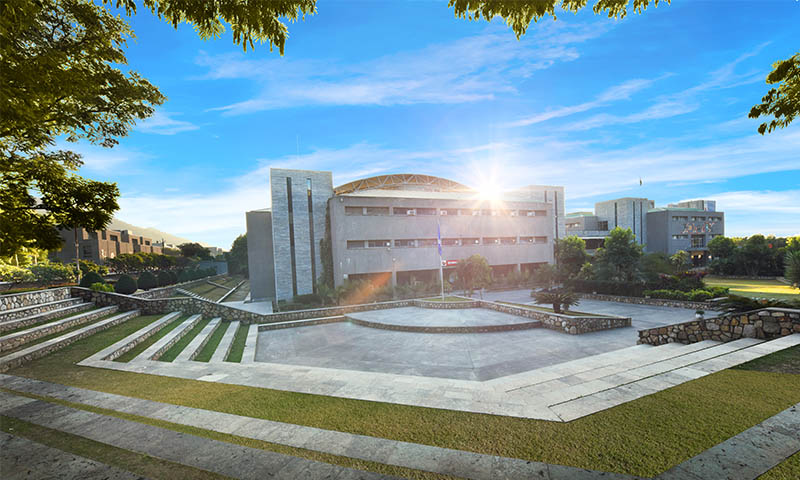
Dr Rai adds, “Every student was able to appear for classes and their exams. The only challenge was in terms of the mindset of students and recruiters both, shifting to online recruitment platforms was the easiest part, but the acceptance was a challenge.” The faculty and management team at UPES organised expert workshops to help students remain emotionally strong and be ready to take the challenges head-on, resulting in students confidently appearing for interviews and eventually getting placed.
Always Ahead of the Curve
The COVID19 conundrum revealed the tech-readiness of colleges and universities. However, UPES has always been a visionary and well equipped with technology, which enabled the university to absorb the shock better and stay ahead of the competition. “Continuing education through online instruction models was a top priority for us when the COVID19 pandemic struck. We leveraged robust digital teaching technologies such as ‘Blackboard’ and fortified competencies of our 550+ faculty members for quality online learning practices,” says Dr Rai. UPES has invested in online teaching programs, digitalisation of curriculum, and faculty members’ training in delivering online classes. “We implemented the world’s most advanced Learning Management System (LMS) and trained all our faculty in online teaching through LMS. Before COVID-19, 20 per cent of the overall curriculum was digitised and taught online, which was scaled to 100 per cent during the pandemic,” claims Dr Rai. UPES keeps organising training programs for the faculty to keep them updated with the latest trends.
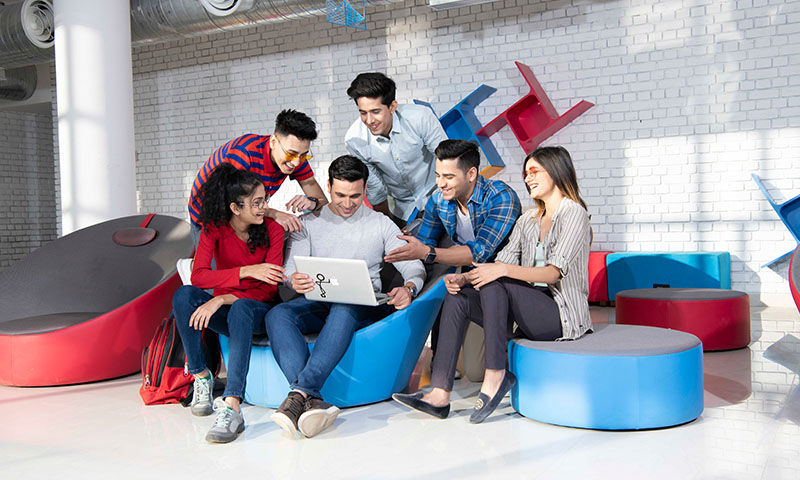
Recently, a five-day Faculty Development Program was organised at UPES under the AICTE Training and Learning (ATAL) academy. “The program’s objective was to highlight the importance of ‘Life Skills’ and how to cope with changing lifestyle and stress, especially in the present era. From self-awareness to emotional intelligence, from universal values to work-life balance, attendees imbibed many invaluable lessons in the five-day program,” explains Dr Rai. UPES has also received a Blackboard Catalyst Award for the professional development of faculty in 2019.
UPES has kept pace with the industry advancements to mould the modules and practices, giving UPES an edge and keeping it relevant with times. This has placed the university at par with the world’s leading academic institutions. “At UPES, we believe that every student and staff should have an opportunity to gain international exposure. We intend to achieve this through international student mobility, hosting international faculty and thought leaders at the UPES campus, promoting online collaboration between students at various institutes and universities, promoting joint research between faculties, increasing institutional collaboration through MoU’s and by participating in international academic events,” says Dr Rai.
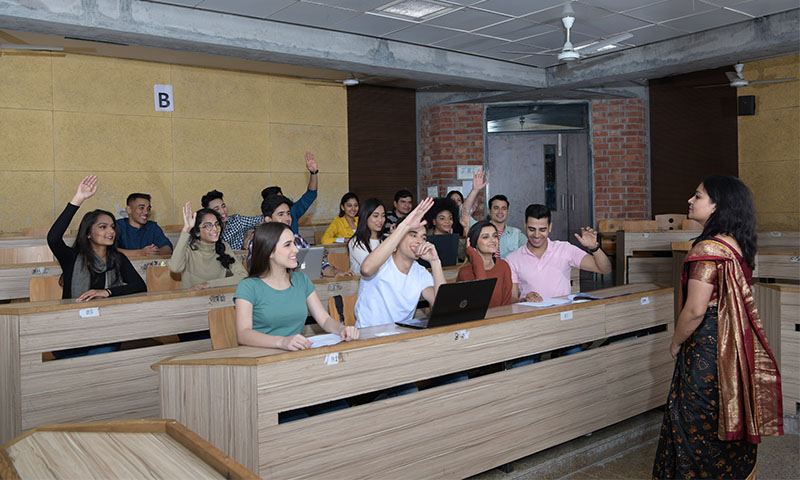
UPES has collaboration with top-ranking universities across the globe to provide the best education experience to the students. With more than 60 partner universities across the world and 7 active associations with international bodies, UPES provides excellent exchange opportunities. UPES also has a Department of International Affairs (DIA) that supports student mobility. In fact, international exposure helps enhance students’ personal growth as they become competent in tackling various challenges during the journey. Dr Rai adds, “Learning by living in a new culture comes with its own set of challenges; overcoming them increases one’s confidence and belief in one’s abilities. This helps students acquire knowledge in worldly matters, which is extremely important in today’s dynamic world.”
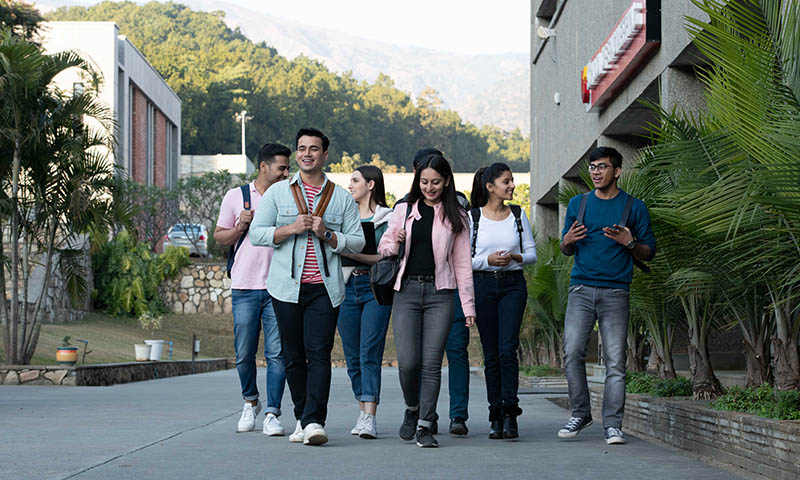
Creating Professional with and an Extra Edge
As India Inc is trying to bounce back on its feet, there is an increase in demand for professionals with cross-domain knowledge, negligible to no warm-up or training period. “There is a high need to bridge the demand-supply gap, which can only happen when relevant education is imparted. We have adopted a multi-pronged strategy based on the thorough assessment of the situation and analysis of the recruiters’ sentiments helped students in navigating the unforeseen circumstances,” opines Dr Rai.
Though many companies had shifted to remote working, UPES managed to arrange over 2400 internships, mostly virtual, for the students to get real-time experience and put their knowledge and skills to use. “We planned specific training interventions targeting cross-functional expertise to enhance our students’ employability quotient. We also provided them access to online learning platforms like Coursera and encouraged them to pursue certification courses to gain additional expertise in their core and allied fields,” pinpoints Dr Rai.
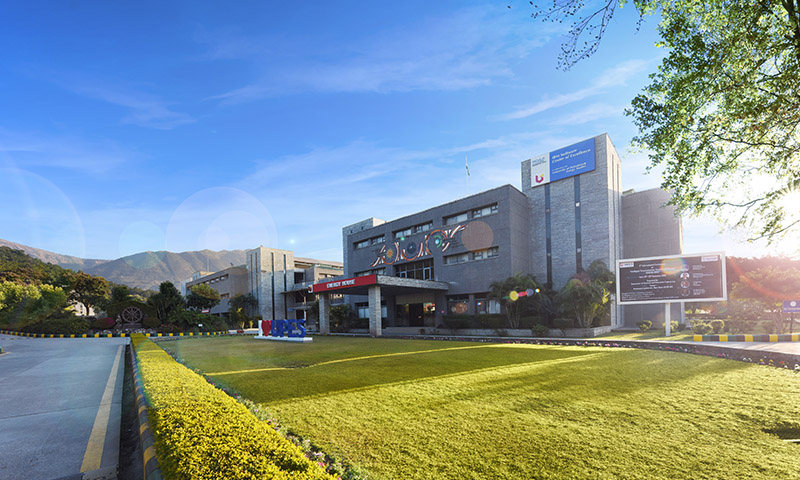
UPES has started an initiative named EDGE (Enhanced Development for Growth and Enrichment) that supports students in their chosen fields, focusing on key action areas- entrepreneurship, exam pathways (such as Services Selection Board for Indian Armed Forces), and employability. Through EDGE, the career services wing of UPES customises training and mentorship programs to address individual requirements of each student, depending on whether they want to run a start-up, sit for entrance exams, explore social work or start a corporate career.
“We work in tandem with students to design customised educational plans that meet their individual goals. Among other things, we offer our students a personalised learning environment with a great deal of flexibility and continuous mentoring. Moreover, we integrate technical knowledge with strong ethics and leadership skills to churn out the best,” shares Dr Rai.

Advocating Total People Development
UPES was established in the year 2003 with a vision to help students fulfil their aspirations and dreams. UPES has since emerged as an innovative institution offering industry-focused specialised undergraduate and postgraduate courses, some of which cater to high-growth areas like cloud computing, mechanical engineering, civil engineering, aerospace engineering, mechatronics engineering, fine arts, big data analytics, public administration, machine design engineering, computer science, petroleum, graphic and gaming and so on. The university currently has 5 international, 6 national and 6 regional university network memberships, besides a learning development centre.
“Nearly 75 per cent of our faculty members at UPES are covered under various training and development initiatives. We have emerged as a strong gender diverse organisation that brings about Total People Development,” pinpoints Dr Rai. The faculty internship program conducted by UPES called Project Abhigyat helps equip faculty with current industry knowledge and experiences. Another initiative, PGCAP that stands for Post Graduate Certificate in Academic Practices, provides academic, personal, and professional development opportunities to the faculty/academic staff that effectively drive higher education. 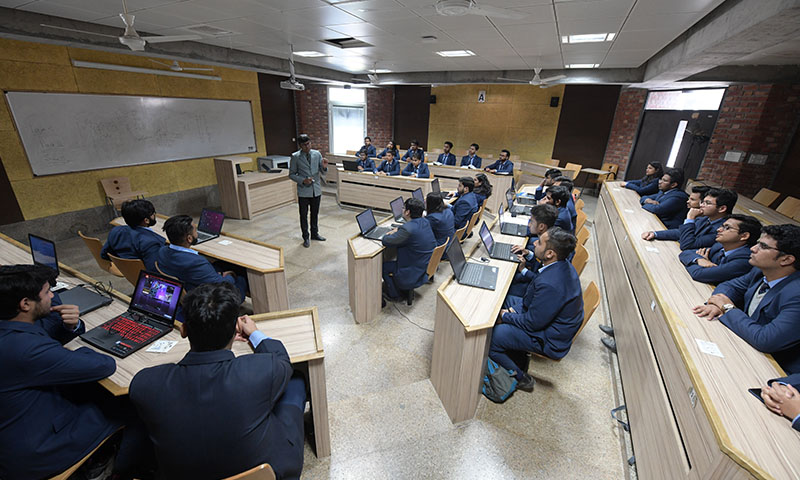
“Besides the above, we have multiple initiatives not only to inspire high-potential and high-performing leaders but also to help staff acquire new technical and soft skills, sharpen existing ones, increase productivity and become better professionals,” adds Dr Rai. To augment students’ employability, UPES has a well-laid-out team of career advisors, guiding students and 580 companies present on campus. With an impressive placement record of 94 per cent, UPES conducts career fairs, career advising sessions, interview training and CV support for the students. Additionally, the university has an online career portal to aid the employability process.
UPES boasts of a state-of-the-art infrastructure, including 43 student clubs and societies, library, student accommodation, fitness gym, indoor court and expansive sports fields. The campus houses a bookstore, cafeteria, prayer zones and a social room. Health support services and medical facilities are also available on the campus round-the-clock. In fact, UPES believes in the all-round development of students. Sports, Cultural Activities, Films, Theatres at UPES have been integrated with the curriculum to provide a holistic learning to students. “This is the only way to make wholesome personalities, where students are made ready for the future and are ready to comprehend the context better and therefore be able to take decisions which will be working for the benefit of humanity, shares Dr Rai. Ever since its inception in 2003, UPES has been working tirelessly in pursuit of excellence for delivering high-quality education and its campus looks like a grand harmony of Learning.
Dr Sunil Rai, Vice-Chancellor
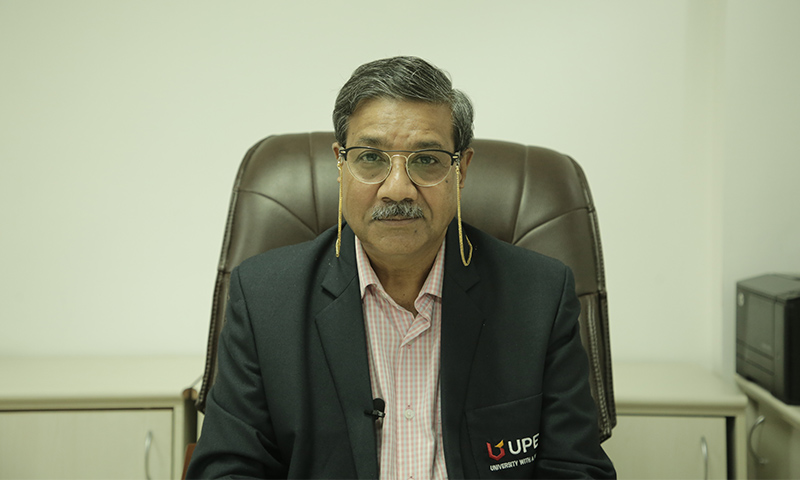
Dr Sunil Rai is the Vice-Chancellor of the University of Petroleum and Energy Studies (UPES). A veteran academician, he has a vast experience of 42 years with 20 years in academics, 21 years with the Indian Navy and 2 years in the corporate world. Before joining UPES, he was the Vice-Chancellor of MIT Arts Design & Technology University, Pune and Director on Board of Maharashtra IT Corporation, Govt. of Maharashtra.
In his illustrious career in academia, Dr Rai has come to be known for designing and implementing plans that transform organisations. He has led them in various capacities – as pro-vice-chancellor, director, dean, and chairperson; additionally, he has been instrumental in building some of these universities into huge brands – through implementing processes, developing and nurturing their staff and obtaining accreditations for them.
He is also a defence veteran and managed ships and technical establishments of Indian Navy in various capacities. He was a commissioned officer in the Indian Navy for 21 years and served on ships INS Vikrant, Nilgiri, Himgiri and Oil tanker Shakti.
Dr Rai holds a PhD in Business Continuity Management from BITS Pilani, M. Tech. in Computer Science & Engineering from IIT Mumbai and MBA with HR Specialisation from IGNOU. He also holds a Masters in Marine Engineering from Naval College of Engineering.




